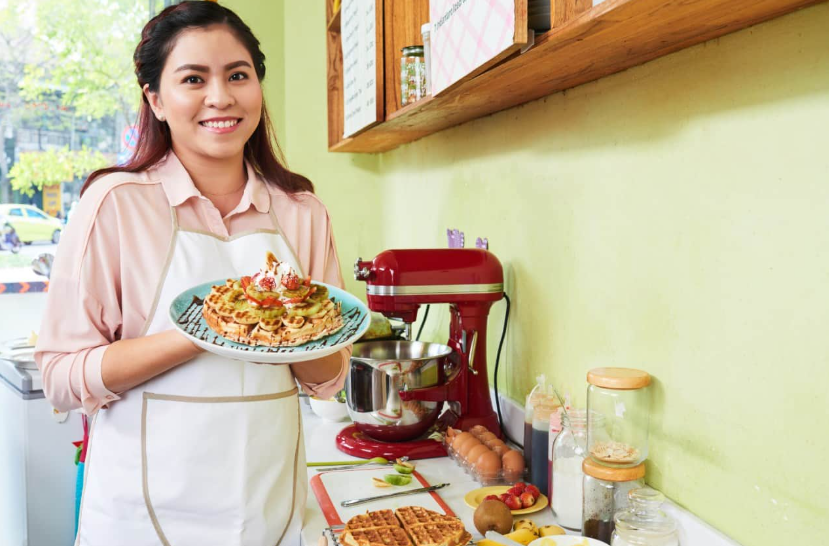Understanding F&B Licensing in Singapore
Starting a food and beverage business in Singapore is an exciting opportunity, but it also comes with responsibilities—one of the most critical being the need for an f&b license singapore. The license is a legal requirement to ensure that food-related businesses comply with hygiene, health, and safety standards. Whether you’re opening a restaurant, café, cloud kitchen, or catering service, obtaining the right license is essential for operations.
Types of F&B Licenses in Singapore
Different types of food businesses require different licenses. The Singapore Food Agency (SFA) is the primary authority that oversees these licenses. Below are some common licenses under the f&b license singapore category:
Food Shop License
A food shop license is mandatory for any establishment that prepares and sells food for consumption on or off the premises. This includes restaurants, food stalls, and cafes. The premises must be inspected and approved for cleanliness and safety before this license is granted.
Food Stall License
This license is required if you are operating a stall within a hawker centre, coffee shop, or food court. It is less comprehensive than a full food shop license but still subject to rigorous health and safety checks.
Catering License
If your business involves preparing and delivering meals to customers without operating a dine-in outlet, you need a catering license. This license ensures your kitchen facilities meet strict sanitary standards for mass meal preparation.
Central Kitchen License
Businesses that operate a central kitchen to supply multiple outlets need this license. Central kitchens are inspected for food storage, preparation, and transportation processes under the f&b license singapore regulations.
See also: Cleaner Ponds – Your Guide to a Healthier, More Beautiful Water Feature
Key Requirements for Obtaining an F&B License
Getting an f&b license singapore involves meeting a set of requirements. Here are some crucial ones:
Premises Approval
The business premises must be approved for food operations. You must ensure the location is zoned for commercial use and meets all fire and safety codes. If you’re leasing a unit, the landlord must also agree to its use for food-related activities.
Layout Plan Submission
A detailed floor plan of the kitchen and dining area must be submitted. The plan should show the location of cooking appliances, washing areas, storage spaces, and exits. Proper layout helps in efficient workflows and ensures compliance with hygiene standards.
Food Hygiene Officers and Training
Every food establishment must employ trained food handlers. These staff members must complete the Food Safety Course Level 1, and at least one food hygiene officer is required for larger operations. Proper training is a cornerstone of the f&b license singapore system.
Pest Control Contracts
You’ll need to provide evidence of an ongoing pest control contract with a licensed pest management company. Regular pest control helps maintain hygiene and is often checked during inspections.
Waste Management Plan
Proper disposal of food waste and used cooking oil is mandatory. Your application should include a plan outlining how you intend to manage waste in compliance with NEA guidelines.
Application Process
Once the requirements are fulfilled, you can proceed with the f&b license singapore application. Here is a step-by-step breakdown:
Step 1: Online Application
Submit your application through the GoBusiness Licensing Portal. Ensure all required documents are prepared, including tenancy agreements, floor plans, and food hygiene certificates.
Step 2: Document Review
The authorities will review your application and contact you for any missing information. This stage can take a few working days.
Step 3: Site Inspection
An officer from the SFA will conduct a physical inspection of the premises. This includes checking equipment, pest control measures, waste disposal systems, and cleanliness.
Step 4: Approval and License Issuance
If the site passes inspection and meets all regulations, the license is approved and issued electronically. The f&b license singapore is typically valid for one year and must be renewed annually.
Common Mistakes to Avoid
Many food businesses face delays or rejections due to simple errors during the licensing process. Here are some mistakes to avoid:
Incomplete Documentation
Submitting an application with missing documents is a common issue. Double-check the checklist provided on the GoBusiness Licensing Portal.
Non-Compliant Layout
A poor kitchen layout that doesn’t meet ventilation or hygiene standards can lead to rejection. Consult a professional to help design a compliant kitchen.
Lack of Staff Training
Not having certified food handlers on your team is another frequent reason for application denial. Make sure all staff undergo the necessary training before applying.
Costs Involved
The cost of applying for an f&b license singapore varies based on the type of license. A food shop license, for example, costs around SGD 195 per year. Other costs include renovation, training, pest control, and waste management setup.
Renewal and Compliance
Licenses are not a one-time task. They need to be renewed regularly, and establishments must stay compliant with hygiene standards. Surprise inspections can occur at any time, and violations may result in suspension or cancellation of the license.
Digital Tools and Support Services
Today, several online platforms and consultants assist food business owners in streamlining the application process for the f&b license singapore. These services offer layout consultation, document preparation, and compliance training.
Conclusion
Starting a food business in Singapore involves more than just a good menu—it demands legal compliance, especially through the f&b license singapore process. With proper preparation and attention to detail, getting licensed can be a smooth experience. By understanding the requirements and avoiding common pitfalls, you can ensure that your food venture begins on a strong, lawful foundation.



